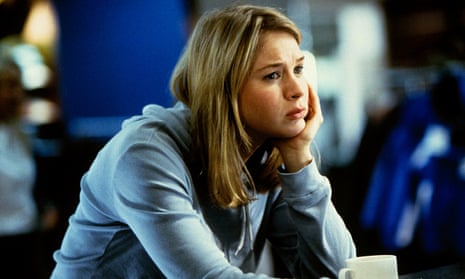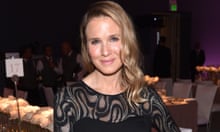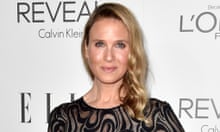If all the world’s a stage, then it’s nice to be able to recognise the other actors. “God has given you one face and you make yourselves another,” Hamlet says to Ophelia. There are two sides to us all: the person we are and the person we pretend to be. This is confusing enough. We spend most of our lives examining people’s faces, working out whether we can trust them or not, and whether they are the thing they say they are. It becomes even more confusing when they turn up one day wearing someone else’s face.
Confusion was the initial reaction from most people looking at the award ceremony pictures of Renée Zellweger that emerged earlier this week. This was the logic: “That is not Renée Zellweger. I know what she looks like. And that is not her.”
It was not unreasonable to ask whether the photographs were a hoax or a case of mistaken identity: “Sack the picture editor. It’s just not her.” I found myself wondering whether Zellweger had been kidnapped. Or if she just couldn’t be bothered to go to the Elle Women in Hollywood Awards and so dressed someone else up in a Carolina Herrera cocktail dress instead. Who could blame her? Except if you were going to pay someone to do that, surely you’d try to find someone who looked a bit more like you?
Regardless of what you think about whether it is ever right to judge someone on their looks, the reaction to these photographs – experienced by many people, including those who have enjoyed Zellweger’s films – is a fact: “It’s just not her.”
Because it simply did not resemble the person we know as Renée Zellweger. That person, it seemed, had gone missing. I was initially in the hoax camp. But then came a statement from Zellweger: “I’m glad folks think I look different. I’m living a different, happy, more fulfilling life, and I’m thrilled that perhaps it shows. My friends say I look peaceful. I am healthy.” At that point I realised that the person I thought I knew was not coming back anytime soon.
The double take, however, remains. And thank goodness. Because that is a normal, human response. The ability to recognise a face is something we all take for granted; yet it is an extraordinary attribute, and one of the first we develop as a baby. It’s a life-saving skill: you learn through facial recognition to identify a) your parents (survival via the food source), and b) emotions (which tell you whether you’re safe or in danger). Neuroscientists estimate that the human brain can remember up to 10,000 faces.
In experiments, 35 years after leaving school, people are able to identify up to 90% of their classmates. But whether you featured alongside Zellweger in the Katy High School, Texas: Class of 1987 yearbook or not, the face at the Elle awards simply did not compute.
Add to this the fact that as human beings, as well as being face-obsessed, we love stories. We are the only species able to tell stories. We rely on narrative to make sense of our lives and to reassure us that our lives are not pointless. This does not always work.
But when it does work, it’s a great trick. Stories are told, especially by Hollywood, using faces and emotions. Zellweger has been part of this great tradition, not least because she is best known for playing a character who supposedly “looked nothing like her” in real life (Bridget Jones). It’s perhaps because of this association in people’s minds that they find this change particularly shocking. Because now she really does look nothing like herself.
There is a basic issue of trust at the root of the intense scrutiny of these pictures. It’s complicated by the fact that Zellweger is a popular, Oscar-nominated actress who appeared to have a lot of self-awareness about image and vulnerability. From jaded single mother Dorothy Boyd in Jerry Maguire (“I’m the oldest 26-year-old in the world”) to Bridget Jones (a role for which she gained 20 pounds in a couple of months), this is someone prized for her ability to be truthful and authentic in an industry where we all love to be able to spot a phoney.
There was plenty of proof that cinema audiences liked the way she looked, whether older or younger, fatter or thinner. They just liked her. They didn’t want her to look like someone else.
Who do we want to tell our stories? We want people who are honest and truthful. But instead we have the emperor’s new clothes. Except that this time, no one is saying the emperor looks great in his amazing clothes. Neither are they saying that the emperor looks naked, or even ridiculous.
Everyone is simply saying that the emperor looks like another person entirely. And that, regardless of how this change has happened (and Zellweger is not saying exactly how), is a whole other level of illusion.
Hopefully it can still all turn out to be a hoax. Perhaps it’s a publicity stunt for the courtroom drama Zellweger is working on at the moment. The title of that film? The Whole Truth.




